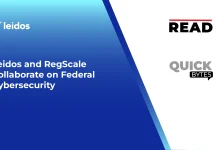New Way Trucks, a privately held industry-leading refuse truck body manufacturer, and Hyzon, a U.S.-based high-performance hydrogen fuel cell system manufacturer and technology developer, are leading the way and gaining momentum in showcasing the value of hydrogen fuel cell-powered electric refuse collection.
New Way and Hyzon debuted North America’s first hydrogen fuel cell-powered electric refuse vehicle (FCEV) at Waste Expo in Las Vegas in May, following an initial announcement earlier this year on a Joint Development Agreement between the two companies. New Way’s expertise and leadership in refuse collection and Hyzon’s focus on providing zero-emission power to decarbonize the most demanding industries combine to make hydrogen fuel cell electric refuse collection a reality for the North American waste and recycling industry.
Interest in hydrogen-powered collection and customer demonstrations of this first-of-its-kind refuse truck has grown significantly since New Way and Hyzon announced its FCEV will be put to the test on routes in the San Francisco Bay Area this month. Additional demonstrations have been scheduled with customers throughout California through the end of the year. The truck will also head to the Los Angeles area before making its way to northern California and then with customers across western Canada into early 2025.
“Refuse collection presents an ideal application to showcase the viability of hydrogen fuel cell technology across the environmental services industry,” said Eric Evans, Chief Product Officer for New Way. “Integrating the performance and functionality of our New Way Sidewinder automated side loader and the consistent and regenerative power of Hyzon’s hydrogen fuel cell drivetrain offers a lighter weight refuse vehicle with more payload, compared to battery electric, and similar range and performance as the diesel and CNG trucks in customers’ fleets.”
Also Read: River Logic Partners with Finstock for Value Chain Optimization
The trials with New Way customers across California and Canada build on the success of Hyzon’s fuel cell electric refuse collection vehicle trials in Australia, demonstrating that hydrogen fuel cell technology is a viable replacement for traditional heavy duty diesel engines and overcoming some of the inherent challenges identified with other zero-emission technologies such as range issues, fluctuations in operating temperatures and payload limitations. Additionally, to further prove hydrogen as a more sustainable option in the refuse industry, Hyzon launched its Class 8 200kW FCEV tractor-trailer trial program last month with major North American fleet customers which includes waste haulers.
“This momentum and continued interest are evidence that our Hyzon high-performance hydrogen fuel cells offer the right technology to provide zero emission power tough enough to perform the hard work a refuse truck needs to deliver day in and day out,” said Hyzon Chief Executive Officer Parker Meeks. “The interest will only increase, and I am excited for our continued partnership with New Way to change the future and power a better way forward.”
Hyzon‘s high-performance hydrogen fuel cell systems are tough enough to provide consistent power over an expected range of at least 125 miles, including at least 1,200 cart lifts along with trips to the transfer station. Combine that with the strength and durability of New Way’s most-requested automated side loader – the Sidewinder XTR™ — with smooth arm operation, up to a 12-foot reach and large 6-cubic-yard hopper for an unstoppable, sustainable refuse collection powerhouse.
“This hydrogen-powered refuse collection vehicle is proof of what happens when industry and technology experts partner to innovate together and bring advanced solutions to propel the industry forward,” said Don Ross, Chief Sales Officer for New Way. “We’re in a unique position to be able to bring more sustainable, alternative power to waste haulers looking to meet zero emissions goals, decarbonization initiatives and other clean energy requirements.”
SOURCE: PRNewswire




